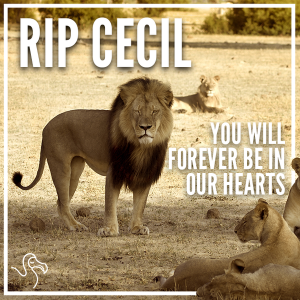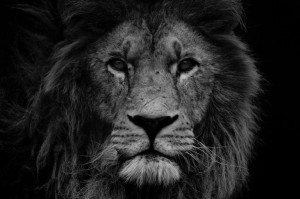Walter Palmer, the dentist who killed the world’s favourite lion Cecil, has returned to his clinic this morning pleading for some “humanity” from his critics. Cecil was a popular attraction at the Hwange National Park. It seems that many tourists and locals had a great affection for Cecil. So many people called for the Minnesotan dentist to be extradited and tried in one of the world’s most brutal dictatorship. An “eye for an eye” doesn’t quite cover what seemed like vengeful blood-lust.
 Of course, Palmer might want to heal himself before he treats on the humanity of others. It is alleged that he paid park guides $50,000 to kill a lion who was an important draw for tourists in one of the world’s most impoverished regions. It is alleged that Cecil was illegally lured from his national park onto private land. There he was wounded by a crossbow bolt, tracked for 40 hours, and finished off with a rifle shot. Cecil was then decapitated and skinned. Suspiciously, attempts were made to destroy a collar which had been attached to Cecil by Oxford University’s Wildlife Conservation Research Unit. Guides were subsequently arrested in Zimbabwe; however Mr Palmer had returned to the United States, and now claims that he believed the hunt to be legal.
Of course, Palmer might want to heal himself before he treats on the humanity of others. It is alleged that he paid park guides $50,000 to kill a lion who was an important draw for tourists in one of the world’s most impoverished regions. It is alleged that Cecil was illegally lured from his national park onto private land. There he was wounded by a crossbow bolt, tracked for 40 hours, and finished off with a rifle shot. Cecil was then decapitated and skinned. Suspiciously, attempts were made to destroy a collar which had been attached to Cecil by Oxford University’s Wildlife Conservation Research Unit. Guides were subsequently arrested in Zimbabwe; however Mr Palmer had returned to the United States, and now claims that he believed the hunt to be legal.
The rage expressed at Palmer online seems disproportionate, but I am not convinced it is entirely irrational. It is part of human to nurture. We naturally respect life; we feel an innate responsibility to the living world and want it to thrive. And a lion is a dynamic, beautiful and awe-inspiring animal. We did not create it so it is not our property. It is immoral to destroy such a creature for pure profit or simple pleasure; in fact, it is wrong precisely because it is dehumanising.
Nor is it at all unreasonable to feel compassion for an animal like a lion. (Even the Pharisees would work on the Sabbath to free a trapped animal.) It is conscious and can suffer; indeed, a lion experiences the world in a way that we can barely imagine and cannot explain. If we could dismantle and reassemble its brain one atom at a time, and could quantify and predict the workings of each part, we would be no closer to knowing what it is like to be that creature. Genesis teaches us that the first humans named the animals; they could not do so by treating each as a mindless automaton which existed merely for the benefit of humans. The Bible’s treats the life-blood with reverence; the lives of animals matter.
However, it is not absolutely evil to kill animals. Apart from anything else, vermin can be exterminated to eliminate diseases. Rats are marvellous masters of adaptation; but although they are naturally curious and affectionate creatures, few will defend the rats’ right to life if it moves into the attic. And whether we like it or not, nurturing the living world can involve hunting. Livestock and crops need to be protected; if animals are breeding beyond their environment’s carrying capacity a cull may be necessary. If hunting aims to protect species or habitats, it seems unobjectionable. Indeed, I’ve been surprised to learn that some conservationists are prepared to make a reluctant peace with trophy hunters.
 Of course, Cecil’s death was possibly illegal and certainly unwarranted and evil. But, while I wish I did not have to state the obvious, I must insist that no-one murdered Cecil the Lion. Cecil was not murdered because Cecil was not a person. He could no more be an innocent victim than he could be a guilty criminal. He was a lion; Jericho, the lion who will replace Cecil in the pride, will most likely kill Cecil’s six cubs. This does not make Jericho an infanticidal maniac who must be apprehended. Jericho is just doing what male lions do, without malice or any other conscious motive.
Of course, Cecil’s death was possibly illegal and certainly unwarranted and evil. But, while I wish I did not have to state the obvious, I must insist that no-one murdered Cecil the Lion. Cecil was not murdered because Cecil was not a person. He could no more be an innocent victim than he could be a guilty criminal. He was a lion; Jericho, the lion who will replace Cecil in the pride, will most likely kill Cecil’s six cubs. This does not make Jericho an infanticidal maniac who must be apprehended. Jericho is just doing what male lions do, without malice or any other conscious motive.
Roger Scruton notes that, unlike animals, humans are self-conscious, refer to themselves in the first person, and actively assert and value their own individual desires. One human individual is not replaceable by another:
[A] wholly new kind of individuality emerges. Unlike the lower animals, rational beings are conscious of their own individuality and refer to themselves in the first person. Their individuality is not a passive thing, attributed by others; it is something that they assert against the world (Animal Rights and Wrongs, p. 42).
Not only do we lack any experience of animals expressing a deep self; science strongly suggests that animals cannot form anything like a human psychology. Complex psychological states such as “dread”, “responsibility” or “ambition” seem to require very complex nervous systems – at a minimum, first-order brain states must be processed by higher cortical regions to create second-order states about those first-order states. So deep personal attachments are impossible in the animal kingdom because animals lack our sense of individuality:
The relation of a mare to her foal is not an example of the I-Thou (Ich-Du) relation so poignantly explored by Martin Buber. The mare does not cherish her foal’s life, personality or identity; does not stand vigil over its moral and psychological development; does not feel its pains and joys as her own….All such attitudes require a consciousness of self and other and of the relation between them, which is inherently absent from the mental repertoire of the non-human animals ( Ibid. p.36).
The absence of rational individuality and deep personal attachments in the mental lives of animals also means that they cannot suffer loss as humans do. In short, the individual human matters in a way that the individual animal does not. Of course, individual animals have behavioural quirks that delight and surprise us. And sometimes it is helpful or pleasant to indulge in a little anthropomorphism – to treat animals as if they were people. But we must remember that anthropomorphism is just a human indulgence. To treat animals like people can actually be cruel – chimps do not want to be coddled like toddlers or dressed in human clothes. Orcas may experience more joy struggling to survive in the wild ocean than they do being waited on by trainers and vets in Sea World.
All of this makes the hatred expressed towards Mr Palmer a little disturbing. Public censure is one thing – it is quite another to wish the man dead.
I am totally in favorof a Cull / Treatment of Trophy Hunters like #WalterPalmer & #Kendalljones If that was possible. Its a mental illness
— Michael Maxson(@metalmax) August 29, 2015
Where am I get my licence to shoot, skin and decapitate Minnesotan dentists? http://t.co/cPH4LccD75#CecilTheLionpic.twitter.com/1qeYpV7Ouc — Stephen Mangan (@StephenMangan) July 28, 2015
Indeed, it seems that death might be too good for Mr Palmer: some Tweeters wished that he would “rot in Hell”. I will be surprised if many of the same tweeters were similarly bothered by the #Gosnell hash-tag. And it would not surprise me if the same individuals don’t demand that we understand violent criminals before we rush to judgement. There’s nothing wrong with that sentiment, I suppose, but I do wonder why Mr Palmer does not get the same benefit from similar doubts. Could it be because Mr Palmer is rich?
Can rich people just, I don’t know, hunt each other? #CecilTheLion
— Nick Taylor (@nickandhislens) July 28, 2015
This is not to defend Mr Palmer; he’ll need lawyers for that, and I doubt he could persuade any reasonable person that wounding, tracking and shooting Cecil was a just and noble action. Still, I have no reason to hate him or to publicly call for his death. Which leads me to wonder if treating animals like people is just an excuse treat other people like animals.
Cecil the Lion gets his revenge in this epic Halloween costume from PETA: http://t.co/86CqOQLnEK pic.twitter.com/5nt6gJno2U
— Complex (@ComplexMag) August 28, 2015
